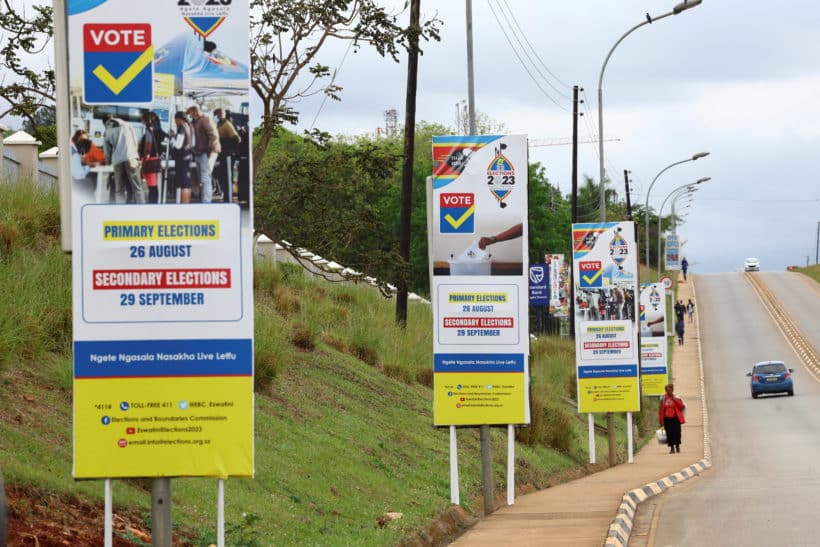
MBABANE, Sept 29 (Reuters) – Voters in Eswatini will cast their ballots on Friday in parliamentary elections whose outcome will make little difference to the politics of a country controlled by Africa’s last absolute monarch.
King Mswati III has ruled the southern African kingdom of about 1.2 million people since 1986, when he inherited the crown from his father, Sobhuza II.
Political parties are banned, but individual candidates can run for seats in the House of Assembly every five years.
The power of the politicians elected in these polls consists mainly of being able to make suggestions to the king, who is free to ignore them.
The election will be dominated by monarchists and other candidates sympathetic to the ruler, said Louw Nel, a senior political analyst at Oxford Economics Africa, in a note.
Two members of the previous parliament who supported the pro-democracy movement were jailed, and a third fled the country, he added.
“It is a misnomer to call what is happening in Swaziland elections,” Sivumelwano Nyembe, spokesperson for Eswatini’s Multi Stakeholder Forum, a pro-democracy activist group, said.
Anger against the governing system has been building for years, and pro-democracy protests turned violent in 2021.
Campaigners say the king has consistently evaded calls for meaningful reforms that would nudge Eswatini, which changed its name from Swaziland in 2018, in the direction of democracy.
Mswati’s opponents also say he uses public money to fund a lavish lifestyle which he shares with his 15 wives, while most of the country’s population is made up of struggling subsistence farmers.
The 55-year-old king denies being an autocrat and is unapologetic about his riches.
Eswatini is rated “Not Free” by the U.S.-based organisation Freedom House, which says the king exercises ultimate authority over all branches of the national government and effectively controls local governance through his influence over traditional chiefs.
The South African Development Community (SADC) has sent an electoral observation mission to Eswatini at the kingdom’s invitation, and will release a preliminary statement on Sunday.
(Reporting by Nellie Peyton and Carien du Plessis Editing by Tim Cocks and Peter Graff)

